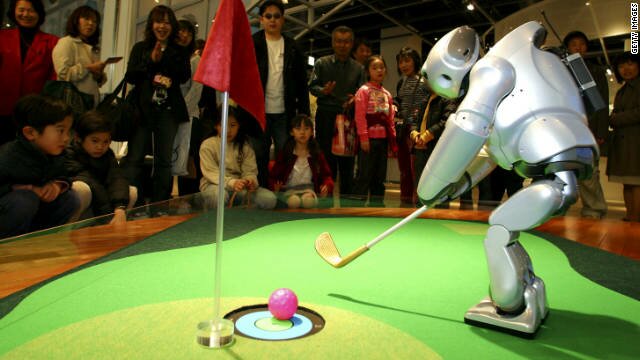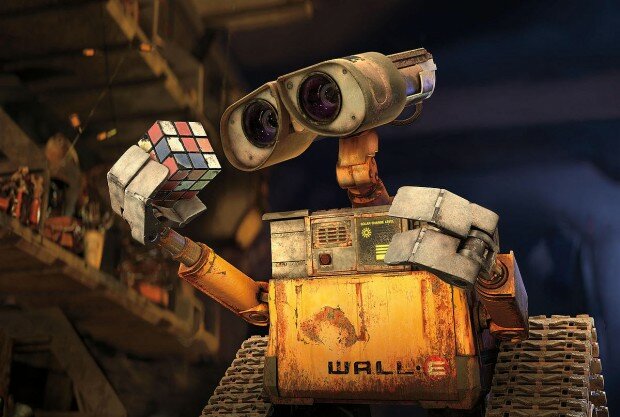When it comes to robotics, the general public typically thinks of science fiction movies and books such as “The Terminator,” “iRobot” or “The Matrix.” They think of robots as a concern for those far off in a future where robots are either society’s ultimate helpers or their greatest threat. However, tech companies like Google are starting to realize that the “robot-revolution” we’ve only read about is, in actuality, right at our doorstep. In the span of only a few months, Google has acquired some of the best and most innovative robotics companies, including Boston Dynamics and SCHAFT, who took first place at the most recent DARPA Robotics Challenge. While the thought of being a part of the beginnings of this “Industrial Revolution Part 2” of sorts is exciting to many, in reality, winter may be coming to Westeros.
As robotics progresses further and further, we find more jobs being automated than ever before. A vast number of factories across the globe have already automated a significant portion of their manufacturing process with almost no human elements aside from quality checkers and maintenance crews. While this may not concern those with higher paying jobs such as doctors and lawyers, for the lower-middle class and and those below who aren’t educated enough for those professions, the increasing trend of automating manual labor should be somewhat worrying, even to those whose jobs aren’t currently in danger.

Via: abcnews.go.com
As an employer, there is almost no reason why you would not take a robot over a human worker from a business standpoint, assuming the robot can do its job correctly and efficiently. It does not need to be paid, it does not need sleep, it does not need smoke or lunch breaks, and its safety is not nearly as much of a concern as a human worker’s. There is literally no way a typical blue collar worker could compete.
Whenever this topic is brought up, many scoff at the idea of robots becoming advanced enough to begin taking over typical everyday jobs in the near future. When people think of robots, they picture walking, talking, humanoid robots that would be nearly human except for their metal body and Dalek-like speech. That’s simply a misconception that will soon be outdated once practical robots intended to carry out one or two simple tasks, being fully practical and not needing any human traits whatsoever.
For instance, chefs at fast food establishments like McDonalds and Burger King should be somewhat alarmed about the fact that there already exists a robot that can make 360 burgers in an hour, and taxi drivers should be feeling the same way about self-driving cars that are projected to reduce traffic accidents by 90% by 2020.

Via: tarborotimes.com
In a world where simpler jobs are completely monopolized by automated machines, the unemployment rate will skyrocket as people struggle to find jobs in markets where they simply cannot compete. The already tense relations between the lower and upper classes in the United States (see Occupy Wall Street) will become even more strained as the only jobs that will be safe are those that depend heavily on creativity (art, music, etc.), highly advanced science and mathematics, entrepreneurship and engineering, particularly in robotics. Google is already making sure they are safe in a world of robots by becoming a major player in the robotics industry earlier on in the game than most.
Fortunately, the future is not as bleak as I may have painted it. Humanity can produce and progress quite a lot when it no longer needs to focus a significant portion of itself on jobs that are now run by tireless metal servants that are devoid of human error while fields involving cutting-edge science, math, technology, and engineering are free to continue on, business as usual, but with the advantage of being backed by advanced robotics.
Nonetheless, society desperately needs to figure out how to handle this upcoming situation. If we’re not careful we will have a ton of angry, jobless people wondering what they are going to do to put food on the table while all the available jobs are taken and Johnny Bigshot is making bank working as a robotic maintenance man at Google.
A serious overhaul of the way the world views employment and skills will be necessary to adapt to such changes. The concept of money will need to be changed to fit a world where a majority of humans no longer need to work. In reality, a world like that essentially equates to a world where a majority of humans are basically on permanent retirement. So sharpen up your brain or sharpen up your golf skills, because the robot revolution is here.

Via: edition.cnn.com






